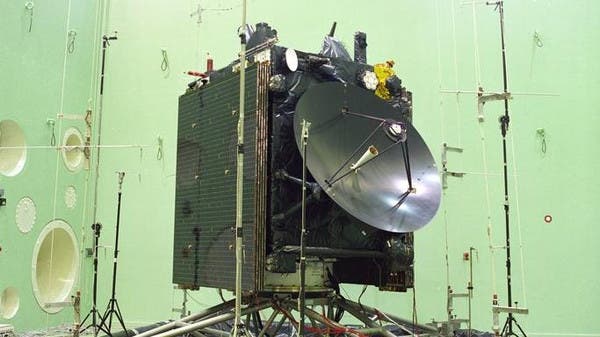Egypt-inspired probe explores our galaxy’s secrets

The Philae lander is attached to Rosetta’s side. (Photo courtesy: esa.int)
By Staff Writer
| Al Arabiya News
Monday, 27 October 2014
Monday, 27 October 2014
As part of the Rosetta Mission, organized by the European Space Agency, Philae is due to land on the comet on Nov. 12 where it will map the body and drill into the surface to obtain material that may reveal clues about the origins of the galaxy and earth.
On Wednesday, scientists behind the mission met with Egyptologists at an English country estate to mark the link between the trip and a 19th-century adventurer responsible for the Egypt-inspired names in the trip.
Kingston Lacy, where the scientists and Egyptologists met, was the home of William John Bankes, the adventurer who found the Philae Obelisk in Egypt in 1815 and brought it to his estate where it stood for almost 200 years.
Bankes deciphered the Greek inscription on the Obelisk. His work led others to “crack” the code to the hieroglyphs, which allowed archaeologists and Egyptologists to decrypt the Rosetta stone and other ancient Egyptian artifacts.
While scientists continue to map encryptions on the obelisk revealing more information about the time and age it came from, James Grasby, a curator for the modern custodian of Kingston Lacy, the National Trust, described the events as a “wonderful collision” between the two different fields.
“The Philae obelisk led to a greater understanding of the ancient world. The Philae probe may lead to greater understanding of the planets and life on earth,” he told the Guardian.
Last Update: Monday, 27 October 2014 KSA 09:46 - GMT 06:46
Labels: Egypt, Exploration, Heritage, Space, Space Science



0 Comments:
Post a Comment
<< Home